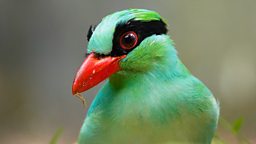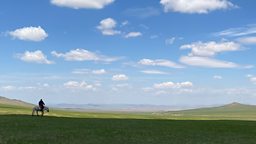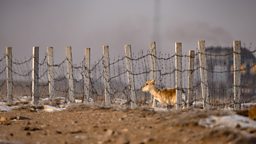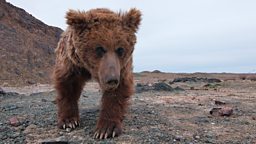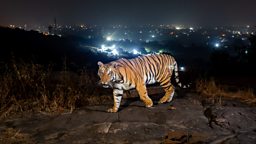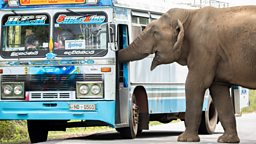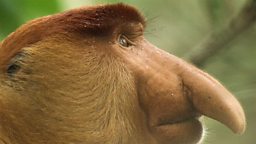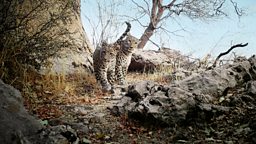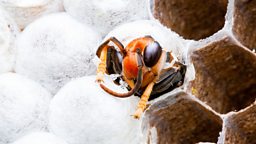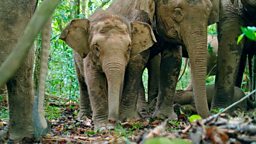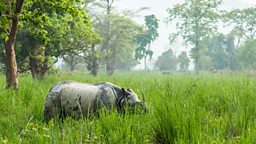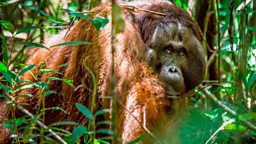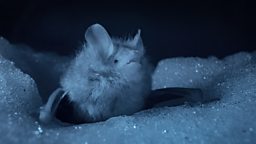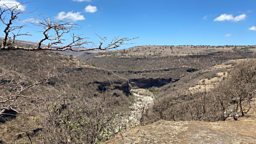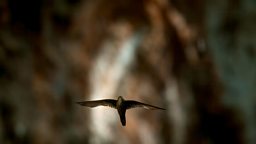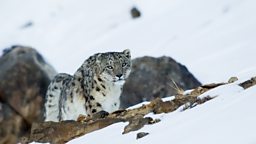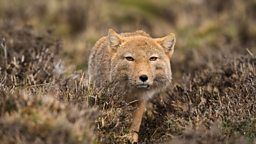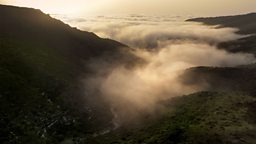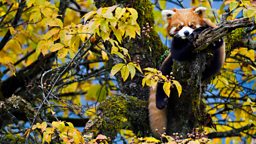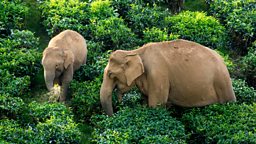Filming the world’s largest goats in Pakistan
By Liv Grant, Researcher
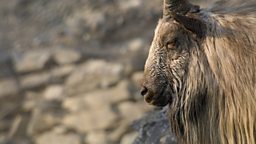
The markhor is the master mountaineer. No other animal matches this wild mountain goat for command of high-altitude terrain in Asia, the continent with the highest peaks in the world. Of course, we simply had to try and capture footage of this endangered species for the “Above the Clouds” episode of the Asia series.
...it was entirely made possible by our collaboration with Pakistani cameraman Abdullah Khan and the wildlife rangers of Chitral Gol.
The first step of planning any shoot is to select the filming location. The markhor was once found across Central Asia, but today they are restricted to just a few remote locations.
Chitral Gol National Park, nestled in the Hindu Kush mountains of western Pakistan on the border with Afghanistan, is one of the last strongholds for the species, and also happens to be the location where the ������̳ Natural History Unit filmed snow leopards for the first time twenty years ago, something which we took as an auspicious sign!
The quest to film markhor was a significant expedition, and it was entirely made possible by our collaboration with Pakistani cameraman Abdullah Khan and the wildlife rangers of Chitral Gol. Abdullah explained to us why the markhor is his favourite animal and has iconic status within Pakistan:
“The Markhor is the national animal of Pakistan for a lot of reasons, but I think what makes it really special is how much it represents the country itself. This goat, with its incredible horns, thrives in the tough, rugged terrain of Pakistan’s northern mountains. In a way, it’s symbolic of the country’s wild beauty and diversity. But what really makes it stand out is the resilience it embodies.”
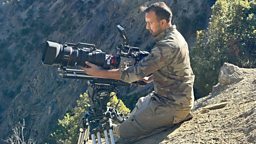
“Just think about Pakistan’s journey—since its inception, it’s faced countless political and economic challenges, with many doubting whether it would survive. Yet, here we are today, standing strong. The markhor’s story is surprisingly similar. It was once on the brink of extinction, with illegal hunting and habitat destruction threatening its survival. But thanks to some really dedicated people and successful conservation efforts, the markhor has bounced back, just like Pakistan has. In fact, today, Pakistan has the largest population of markhor in the world. That’s something to be proud of!”
Our very first challenge when we arrived at Chitral Gol was transporting our gear into the park, as the prime filming locations can only be reached by hiking for several hours. The journey follows a narrow gorge shouldered by steep scree slopes which crumble with every step. I found myself following the trajectory of every falling rock; some would create avalanches of rubble – each one a reminder of the consequences of a small slip. We had forty cases of filming and camping equipment, some weighing in excess of 30 kilograms. Abdullah mobilised a team of local people to help transport everything, but it still took many trips.
Just a few hours into our journey and after years of dreaming about filming the markhor, I finally witnessed one. A lone male appeared on a ridgeline, peering down at us. In the low light of dusk, he was silhouetted against the white slopes of the Hindu Kush. Momentarily, the spiralling horns and flowing ruff of his profile created a defiant prow on the cliff, as though he were part of the very mountainside on which he stood.
We set up camp in a hut, where our camera batteries were charged via a generator, and our only contact with the outside world was via satellite phone.

The purpose of our shoot was to capture the activities of the breeding season, known as the rut, which takes place in winter. The males fight for the right to mate with females. These battles begin with a highly ritualised pas de deux, where two males will spend hours walking in parallel up and down the slopes testing one another’s fitness and commitment to the fight. Eventually, frustration builds, and the duel begins.
Honestly, there's just no other mountain goat like the markhor
Abdullah spent countless hours in a hide filming the rut, and rather than becoming bored with markhor, his admiration for their strength and tenacity only grew:
“Honestly, there's just no other mountain goat like the markhor – they're wild, powerful, and absolutely fearless. And when the rut comes around, that’s when you see them at their absolute peak. Watching two huge males fight for breeding rights is insane! When they’re evenly matched, these battles get intense. We're talking about two 100-kilogram animals crashing into each other head-on with horns that can grow over 160 centimetres long. And they’re doing all this on craggy, near-vertical mountainsides where just standing is a challenge for humans.”
“But here’s the cool part—it’s not all brute force. There's a lot of technique involved too. They’ll fight for the high ground, finding the right rock to brace against when defending. The older markhors are clever about it; they conserve their energy, letting the younger guys wear themselves out before stepping in for a well-timed headbutt. They know how to play it smart.”
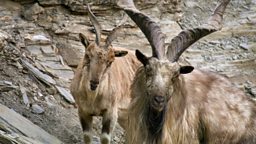
“Then you’ve got the younger markhors who team up to challenge the bigger ones. They're lighter and more agile, able to chase females along narrow ledges, while the big guys can't follow as easily. It's like a real-life drama playing out in front of you.”
It takes a lot to be the true monarch of the mountains.
“For me, as a wildlife cameraman, it’s the kind of spectacle that you never get tired of filming. Seeing all this unfold in the wild is what keeps pulling me back to Chitral Gol year after year. It’s raw nature at its best, and capturing that action is just something I live for.”
Not every markhor can win, and many wore the evidence of battles fought and lost. Some were missing an eye; others were crowned by bloody stumps in place of horns. Some victors were so exhausted by the effort of the fight that they lacked the energy to court females, and so only very few markhor males ever mate. It takes a lot to be the true monarch of the mountains.
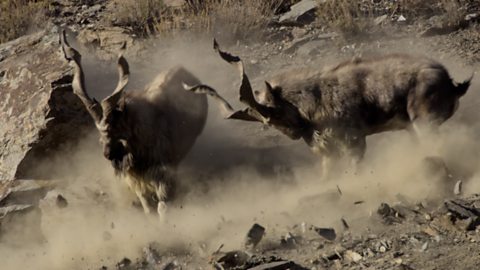
A high-stakes markhor goat battle in the Hindu Kush
Male goats clash in a showdown for breeding rights amid winter's first snows.
